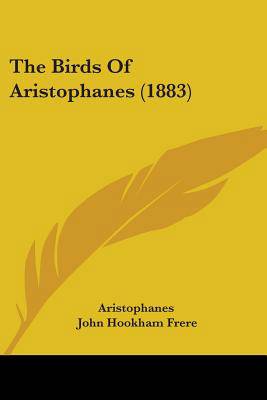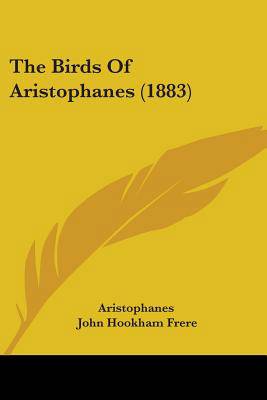
- Afhalen na 1 uur in een winkel met voorraad
- Gratis thuislevering in België vanaf € 30
- Ruim aanbod met 7 miljoen producten
- Afhalen na 1 uur in een winkel met voorraad
- Gratis thuislevering in België vanaf € 30
- Ruim aanbod met 7 miljoen producten
Zoeken
Omschrijving
The Birds of Aristophanes is a play written by the ancient Greek playwright Aristophanes, first performed in 414 BC. The play is a comedic satire that tells the story of two Athenians who decide to leave the city and build a new utopian society in the clouds, with the help of the birds. The play is divided into two parts, with the first half focusing on the two Athenians, Pisthetaerus and Euelpides, as they search for the kingdom of the birds. The second half of the play takes place in the kingdom of the birds, where Pisthetaerus and Euelpides convince the birds to help them build their utopian city. Throughout the play, Aristophanes uses the characters and plot to satirize various aspects of Athenian society, including politics, religion, and philosophy. The play also features a number of musical numbers and comedic set pieces, making it a popular choice for theater productions to this day. The Birds of Aristophanes was first published in 414 BC, and has since been translated into numerous languages and adapted for stage productions around the world. This particular edition, published in 1883, features an English translation by William James Hickie, as well as an introduction and notes on the text by John William Donaldson.This scarce antiquarian book is a facsimile reprint of the old original and may contain some imperfections such as library marks and notations. Because we believe this work is culturally important, we have made it available as part of our commitment for protecting, preserving, and promoting the world's literature in affordable, high quality, modern editions, that are true to their original work.
Specificaties
Betrokkenen
- Auteur(s):
- Vertaler(s):
- Uitgeverij:
Inhoud
- Aantal bladzijden:
- 92
- Taal:
- Engels
Eigenschappen
- Productcode (EAN):
- 9781437035827
- Verschijningsdatum:
- 1/10/2008
- Uitvoering:
- Paperback
- Formaat:
- Trade paperback (VS)
- Afmetingen:
- 152 mm x 229 mm
- Gewicht:
- 136 g

Alleen bij Standaard Boekhandel
+ 56 punten op je klantenkaart van Standaard Boekhandel
Beoordelingen
We publiceren alleen reviews die voldoen aan de voorwaarden voor reviews. Bekijk onze voorwaarden voor reviews.








